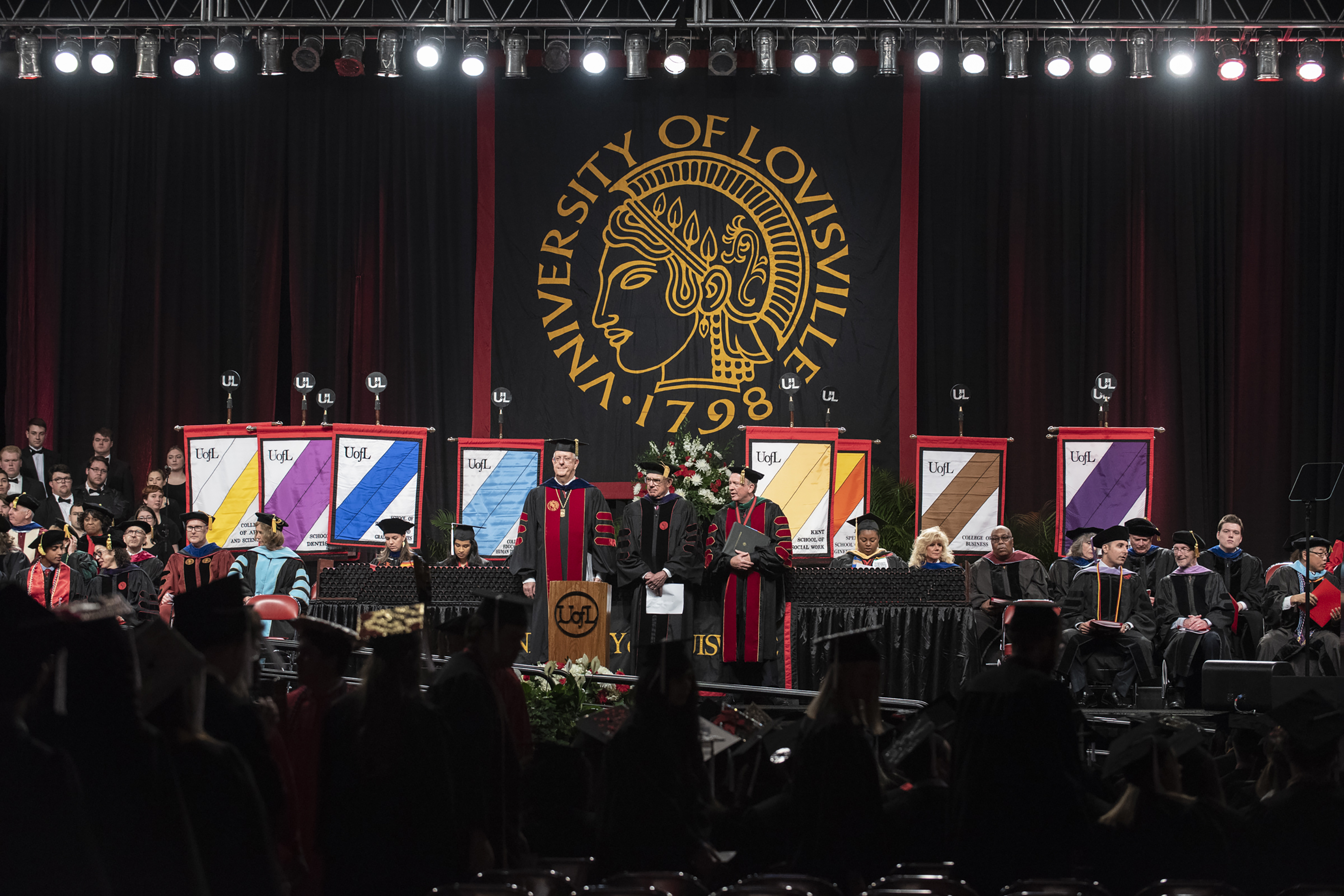
Accreditation and Academic Programs
On behalf of the provost, we manage the approval and review of academic programs, centers, institutes and departments, and we ensure compliance with institutional and program-level accreditors.
Publicly available information
UofL is committed to keeping students, families, and the public informed about how it delivers on its mission to achieve preeminence as a nationally recognized metropolitan research university by educating and serving its community.

UofL student achievement
Six-year undergraduate graduation rate
First to second year retention rates
Number of graduate and professional degrees awarded
Professional licensure exam pass rates in education, law and healthcare

Academic policies and procedures
Explore degree requirements, admission standards and other important academic policies and procedures by reviewing the academic catalogs, the policy and procedure library and the Redbook.
Frequently asked questions
UofL offers more than 250 academic programs across a wide range of disciplines. To browse available degrees and certificates, visit the Academic Catalogs.
Many UofL programs are accredited by specialized professional organizations. To view a list of accredited programs, visit the Accredited Programs page. Department chairs, program coordinators, and other faculty responsible for acting as the primary liaison for their program-level accreditor should consult the accreditation resources on the Faculty and Staff Resources Intranet site (sign in required).
Faculty, staff, or administrators may propose new programs, departments, centers, or institutes. Proposals must follow the Redbook, academic unit by-laws, and institutional policies. Visit the AAP Faculty and Staff Resources intranet site (sign-in required) for guidance and forms.
Changes to existing programs, departments, centers, or institutes must follow institutional procedures and be approved through appropriate governance channels. Visit the AAP Faculty and Staff Resources intranet site (sign-in required) for details.
Academic agreements must be proposed by UofL faculty, staff, or administrators in accordance with institutional policies, including the Redbook and academic unit by-laws. To learn more about academic agreements, visit the Academic Agreements page.
To initiate a new agreement, faculty and staff should visit the AAP Faculty and Staff Resources intranet site (sign-in required) for proposal guidance, required forms, and workflow details.
UofL uses the Concourse Syllabus system to upload, store, and manage course syllabi. Instructors can upload syllabi directly through Blackboard, which links to Concourse, or by logging into the Concourse Syllabus system. Administrators and staff with domain privileges granted by their associate deans may also upload syllabi and audit compliance on behalf of their units.
Anyone with UofL single sign-on credentials can access and view syllabi. The system maintains historical records dating back to Fall 2015.
To find guides and video tutorials, visit the AAP Faculty and Staff Resources intranet site (sign-in required).
To access, upload, or audit syllabi, visit the UofL Concourse Syllabus Management system (sign-in required).
UofL is accredited by the Southern Association of Schools and Colleges Commission on Colleges (SACSCOC). The university's accreditation was most recently reaffirmed in 2017. For more information about SACSCOC and UofL's accreditation efforts, visit the SACSCOC Accreditation webpage.
Visit the SACSCOC Accreditation webpage published by Accreditation and Academic Programs to find information about UofL's most recent reaffirmations and interim reviews, external links to relevant SACSCOC webpages, and required accreditation-related disclosures.
UofL follows SACSCOC standards to ensure faculty are qualified to teach assigned courses. Requirements vary by course level and typically include appropriate academic degrees or documented experience. Visit the Faculty Credentials Information page for details.
UofL provides several pathways for submitting complaints depending on the nature of the concern. Visit the Dean of Students Complaints and Grievances page to learn more.
Meet the team




